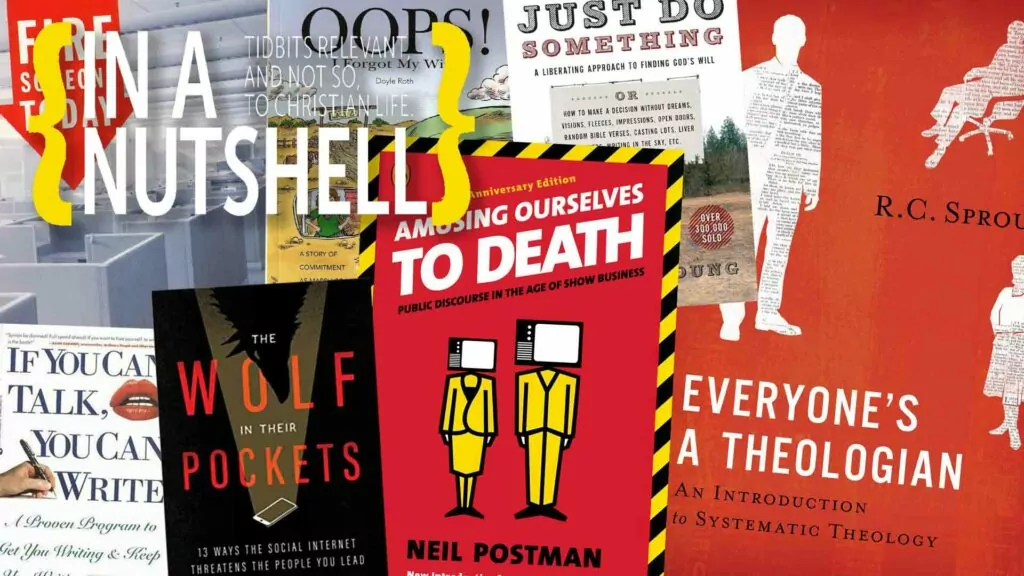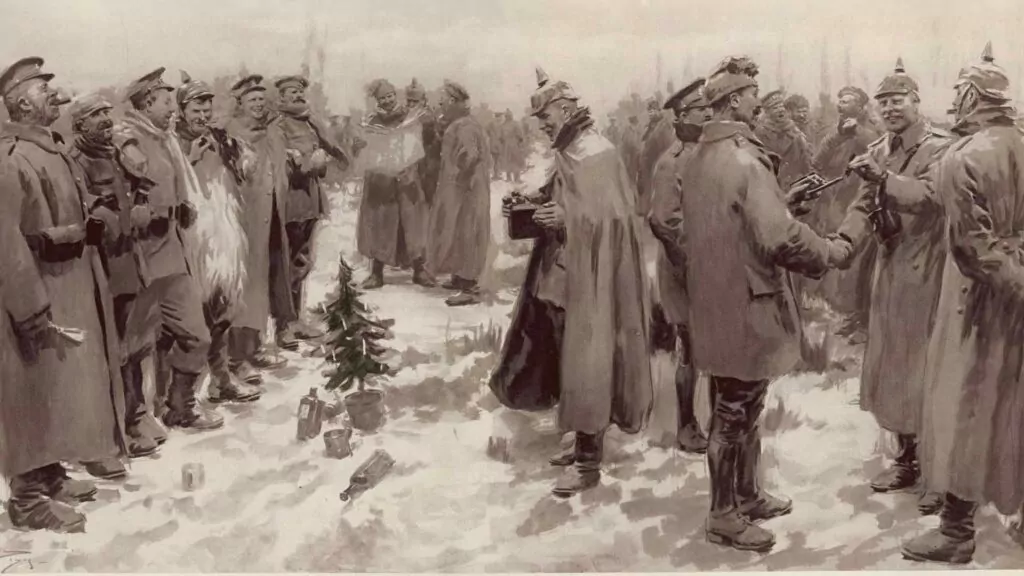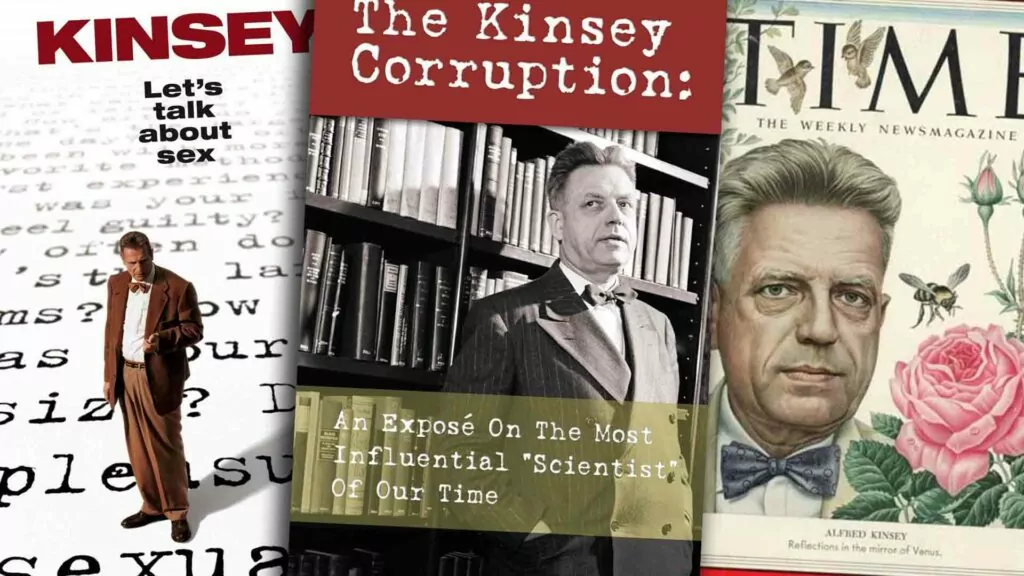Complaining: our national pastime
Long ago, people were taught not to complain. In addition, being selfless, giving, and kind was applauded as the way that a person should live.
I’m not certain when the tide changed, but there is generally an attitude now of “me first” that is promoted, approved, and endorsed. And we Christians even fall prey to this worldly behavior at times. It is so prevalent that we don’t even recognize it for the sin it is.
Just a half twist on the truth
I remember noticing self-centeredness when it became popular to say, “‘Charity begins at home, so I need to give to myself first.”
The original saying, “Charity begins at home,” meant that learning to love others and put others first is an action that needs to be learned within the family unit.
Then I noticed that “Love your brother as you love yourself” (Matt. 22:39) started being used in a way that disregarded Ephesians 5:29 which tells us “…no one ever hated his own flesh, but nourishes and cherishes it.” Instead, some people started saying, “See, before we can love anyone else we first have to learn to love ourselves right.”
Add to this the magazines that encourage women in particular to look out for themselves first (and even the crazy commercials where family members shout, “Leggo my Eggo” as they grab each other’s breakfast treat) and we have a society that thinks this is the correct way to think.
Root of complaining
When we place ourselves first, this entitlement can have us thinking that nothing should ever go wrong in our lives. Appliances and cars shouldn’t break down, kids shouldn’t argue, milk shouldn’t be spilled, traffic should never be jammed, and other drivers should never drive “wrong.” Our health should always be perfect, and our boss should give us praise and a raise, and our family and friends should consistently lavish loving attention on us (unless, wait, maybe they are putting themselves first also! Hmmm).
But here we are in the real world, where things don’t always go the ideal way that we would prefer.
And so we hold a complaint-a-thon: “Let me tell you all the things that I didn’t like in my last few hours (or days, or weeks).” Then we launch into how everything stinks. Often our recounting causes us to monopolize the conversation, believing that it’s interesting to the hearers. Our hearers, often enough, are patiently waiting to give their own account of their sufferings until the entire circle of friends is comparing or one-upping levels of discomfort. It’s quite the popular thing to do.
When we complain, we are talking only about our own reactions to the world around us. It’s self-focused and self-centered, and generally expresses a lack of gratitude to and trust in the Sovereign God who brought those circumstances to us.
Don’t do it
The crux of the matter is that God very clearly commands (not suggests!) us not to complain. The apostle Paul says in Philippians 2:14-15:
“Do all things without grumbling or disputing, that you may be blameless and innocent, children of God without blemish in the midst of a crooked and twisted generation, among whom you shine as lights in the world.”
The root cause of complaining is a lack of trust in God’s providential care for us. Complaining means that we, His sheep, are essentially saying, “Hey, Shepherd, I don’t like the trial that you sent to me today.” Proverbs 3:5-6 teaches us,
“Trust in the Lord with all your heart, and do not lean on your own understanding. In all your ways acknowledge him, and he will make straight your paths.”
We will not always understand why we face circumstances that we do not like. But when we pray about them, the Lord will assure us that He has everything under control – His path just looks different than ours did.
What we think complaining does for us
Dave Stuart Jr., in The Case Against Complaining, suggests that we complain because we think venting is therapeutic and will make us feel better. We might even think that it builds the “fellowship of the offended” because we are all in this together.
We need to carefully consider what our deceitful hearts tell us to do, as it may not actually be helpful to us or to others who have to listen to us. There are better, more positive ways to build camaraderie, because “complaining wastes time and warps our heart, making us feel powerless.”
Will Bowen has an excellent TED Talk entitled “A World Without Complaining.” In it, he states five reasons why people complain so much:
To get attention: complaining seems to help them to feel connected to other people. It’s ego reinforcement.
To remove responsibility: complaining may get them out of doing a task that they don’t want to do.
To inspire envy (or brag): the purpose of their complaining is to impress other people with their superiority in how much more they have suffered.
To make themselves more powerful: they gain support by complaining to people with similar opinions.
To excuse poor performance: people complain instead of taking blame for not completing an assigned task. “It’s not my fault, because someone else….” They complain to avoid accountability.
Results of complaining
Research from Stanford University has shown that complaining negatively affects your brain and your body! According to Dr. Travis Bradberry, Ph.D. and author of Emotional Intelligence:
Complaining actually rewires your brain for negativity, or in other words, what you practice, you perfect:
“When you repeat a behavior, your neurons branch out to each other to ease the flow of information… So your neurons grow closer together and the connections between them become more permanent. Scientists like to describe this process as ‘Neurons that fire together, wire together.’ Repeated complaining rewires your brain to make future complaining more likely. Over time, you find it’s easier to be negative than to be positive, regardless of what’s happening.”
Complaining becomes an entrenched habit!
Complaining shrinks the hippocampus – the area of the brain critical to problem solving and intelligent thought. Keep in mind that the hippocampus is one of the primary brain areas destroyed by Alzheimer’s.
Complaining causes your body to release the stress hormone cortisol, which shifts you into fight-or-flight mode. It raises your blood pressure and blood sugar, impairing your immune system and making you more susceptible to depression, digestive problems, sleep issues, physical/mental exhaustion, and heart disease.
None of this should be a surprise to Christians. Prov. 17:22 states, “A joyful heart is good medicine, but a crushed spirit dries up the bones.” And what did Paul say are the fruit of the Holy Spirit within us?
“But the fruit of the Spirit is love, joy, peace, patience, kindness, goodness, faithfulness, gentleness, self-control; against such things there is no law.” (Gal. 5:22-23)
If we go back a couple of verses in Galatians 5, we might place complaining under “the desires of the flesh are against the Spirit.” Perhaps our complaints might stem from enmity, strife, jealousy, fits of anger, rivalries, dissensions, or divisions.
The solution to complaining
So how do we counter a complaining spirit, especially if that’s become our habit?
Develop an attitude of gratitude. Ps. 106 says, “O give thanks unto the LORD, for He is good, for His steadfast love endures forever.” The apostle Paul tells us in Phil. 4:6: “Do not be anxious about anything, but in everything by prayer and supplication with thanksgiving let your requests be made known to God.”
You can add to this numerous other verses and Heidelberg Catechism sections as well!
When is constructive complaining okay?
Not all complaining is wrong, of course. How can we improve if we won’t acknowledge that something isn’t the way it should be, or could be?
However, we should only engage in solution-oriented constructive complaining. And this should only be done when you truly have something to complain about.
Constructive complaining also means raising the concern with the appropriate person and asking for help with finding a solution. For example, if your son keeps leaving his shoes in the middle of the foyer, what good does it do to complain about it to all your friends? Sit down and work out a solution with your son. Your bank made an error on your account? Go talk to your banker. Feeling achy and tired for the past two days? Talk to your doctor or take the steps you already know will help you (specific exercises, sleep, vitamins, etc.).
When there is an offense between Christians, we are to take the complaint directly to the offender (as scary as that may seem – God can give you the courage!). We read in Matt. 18:15-17:
“If your brother sins against you, go and tell him his fault, between you and him alone. If he listens to you, you have gained your brother. But if he does not listen, take one or two others along with you, that every charge may be established by the evidence of two or three witnesses.”
If there is no resolution, then the complaint can be escalated to take another person or two – possibly an elder – with you to plead your case. Note that this does not include telling everyone else you know about the problem!
Good complaints can begin with gratitude
When you make an appropriate complaint, start it with something positive first. For instance, if your bank makes an error, say, “I have been happily banking here for 15 years, and wish to continue, but recently there was a problem.”
To your son you might say, “Son, I really appreciate that you always hang up your coat and backpack on the hooks. But yesterday I nearly tripped over your shoes that were in the middle of the foyer.”
Be specific. Don’t dredge up everything that has ever happened in your experience with a person. If an employee was rude to you, describe specifically what the employee did that was rude. End on a positive note, such as, “I’d like to work this out together.”
Please note: if you complain to anyone else, you are likely aiming to get attention, remove responsibility, brag, gain power, or excuse your poor performance.
Dealing with other people who complain
Dr. Bradberry states:
“Since human beings are inherently social, our brains naturally and unconsciously mimic the moods of those around us, particularly people we spend a great deal of time with. This process is called neuronal mirroring, and it’s the basis for our ability to feel empathy…You need to be cautious about spending time with people who complain about everything. Complainers want people to join their pity party so that they can feel better about themselves.”
This is likely too rash of a solution, because we must spend time with our family, friends, and brothers and sisters in the Lord. But you can see how it’s easy to fall into the trap of complaining when others are doing it.
Instead, be thoughtful and brave! Think about the direction that a conversation is going, and then redirect it to something more positive. Start talking about specifically how God has blessed you lately, or what you heard in the sermon that really helped you.
Dr. Bradberry suggests that once you have worked on your own habit of complaining, you can help others to improve their negative focus. That seems more sensible advice, akin to taking the log out of your own eyes before trying to get the speck in someone else’s (Matt. 7:3-5). Then do for them as you would want done for you: listen for the need that is being expressed – perhaps the person complains because he feels unheard. Then don’t try to solve his problem. Instead, offer only a few words of sympathy and some encouragement. You might reframe the situation, share information that might be helpful, ask for solutions, or call it out as what it is: grumbling. Then redirect the conversation, talking about positive things.
The apostle Paul tells us to:
“Put on then, as God's chosen ones, holy and beloved, compassionate hearts, kindness, humility, meekness, and patience, bearing with one another and, if one has a complaint against another, forgiving each other; as the Lord has forgiven you, so you also must forgive.” (Col. 3:12-13).
If someone has a legitimate complaint against us, we must apologize. If we have a complaint against them, we must be ready to forgive. If the complaint is mis-directed to us, we should encourage them to go to the appropriate party and solve the problem, not just gossip about it.
Learn to shine
If we justify complaining, instead of confessing it as sin, we will reach a point where it is our default setting. It will feel natural to do it. But we are not stuck! We have the Holy Spirit within us, whose power we can call upon when the temptation strikes us – daily – to complain. We can ask for forgiveness and start noticing our complaints or ask our family members to do so (light-heartedly, perhaps). We can ask our omnipotent Lord to help us to stop it so that we will be “the children of God without blemish in the midst of a crooked and twisted generation, among whom you shine as lights in the world.”
Sharon L. Bratcher is the author of a collection of 45 RP articles entitled: “Soup and Buns: Nourishment from God’s Word for Your Daily Struggles.” To purchase this book, contact her at [email protected]....































